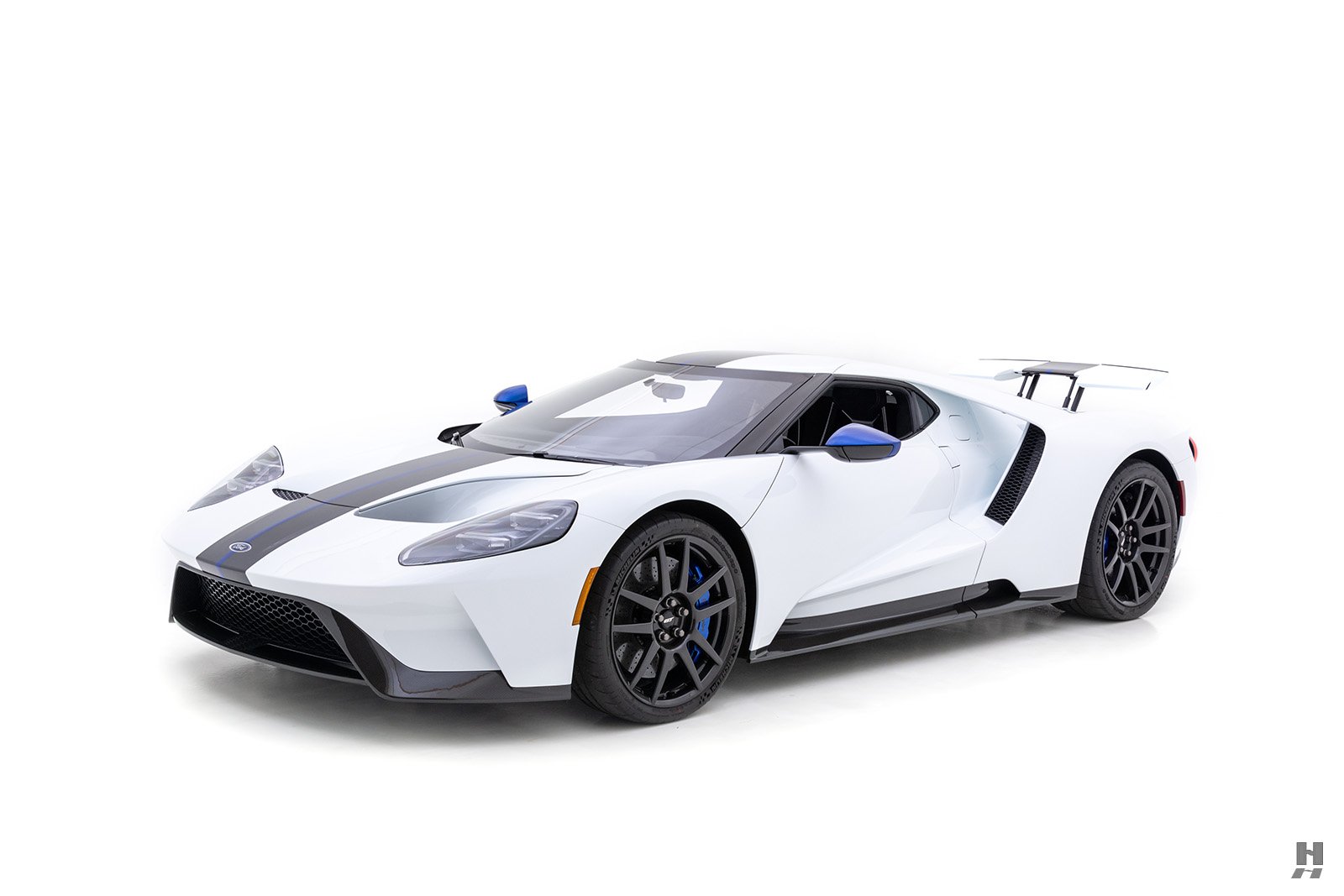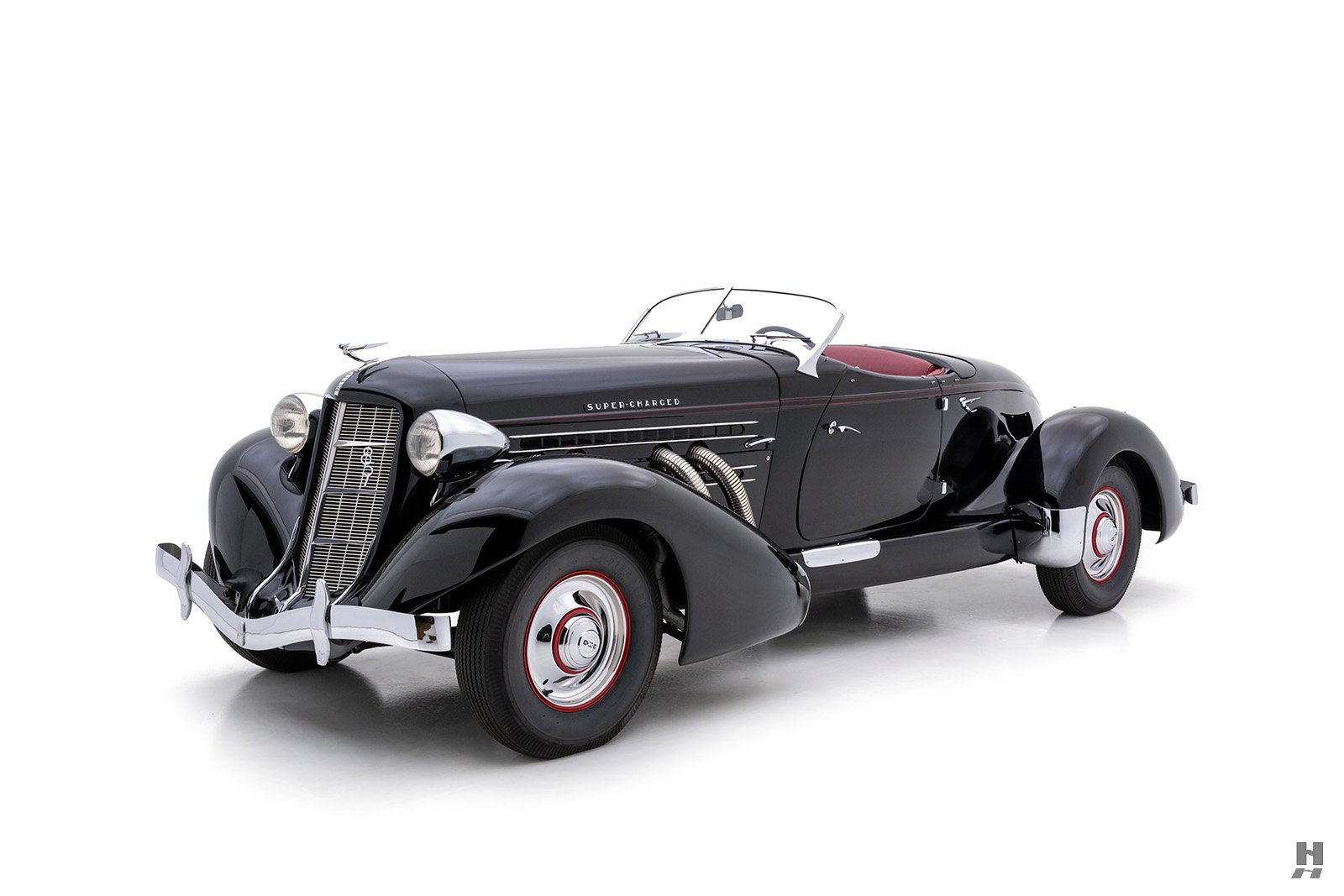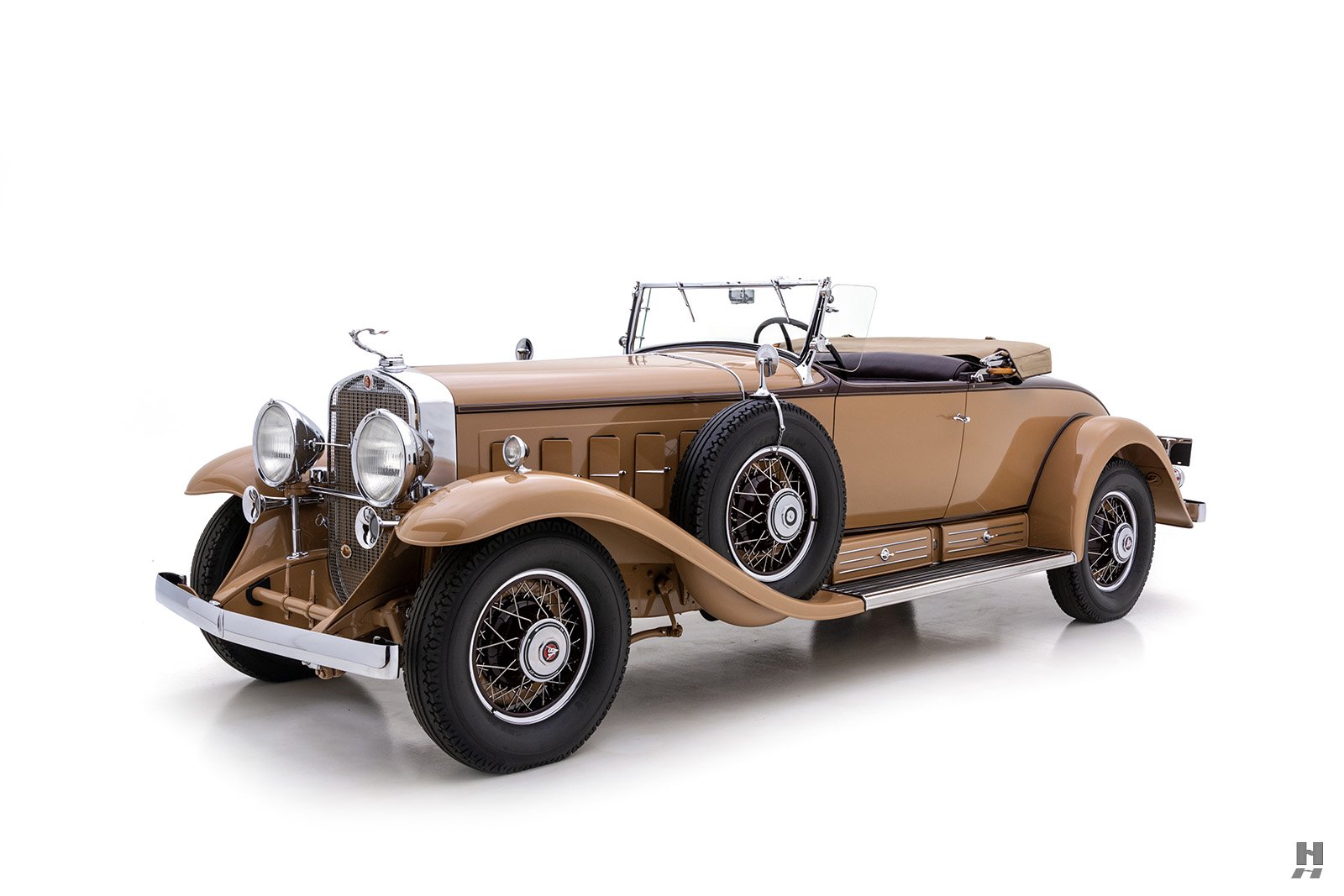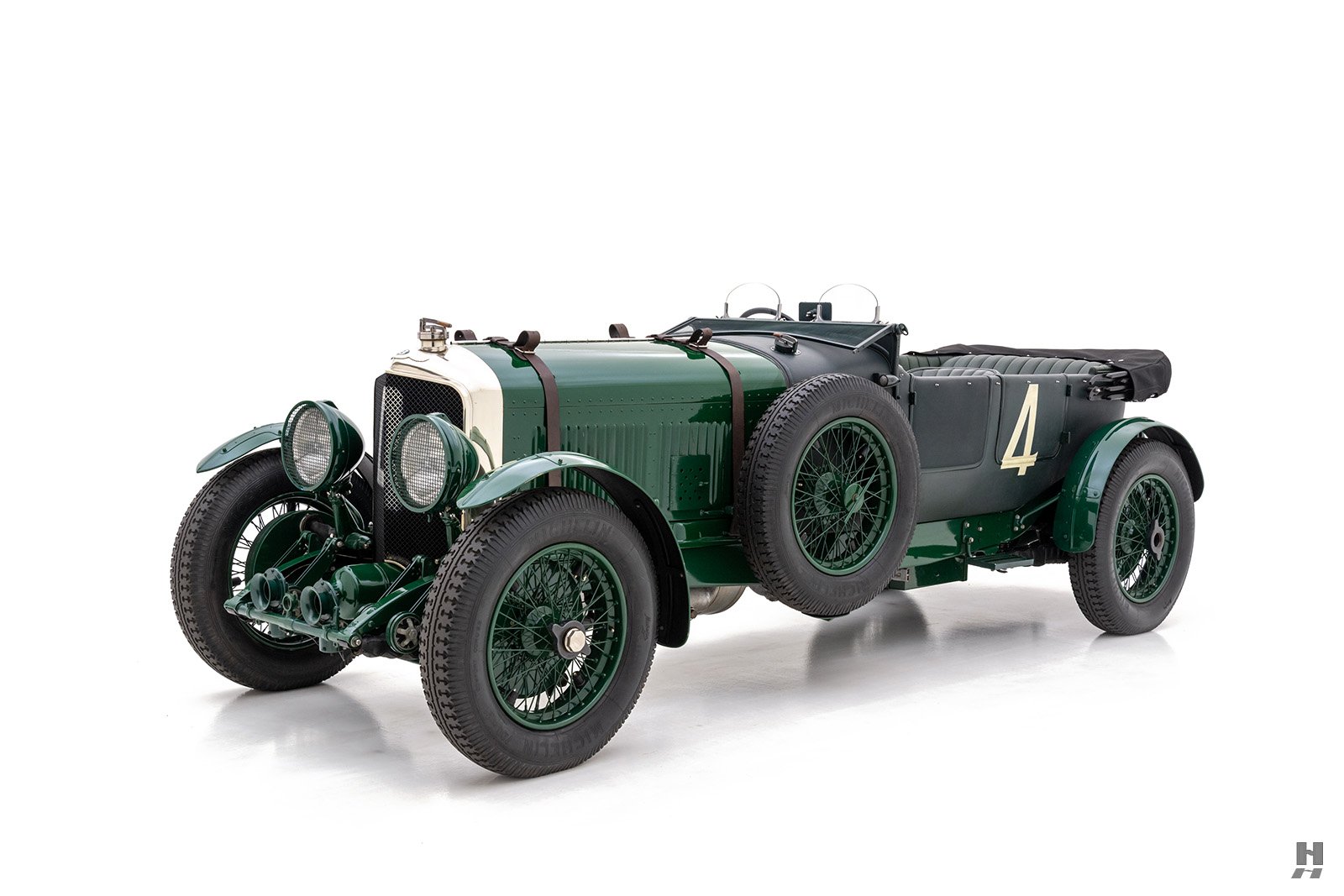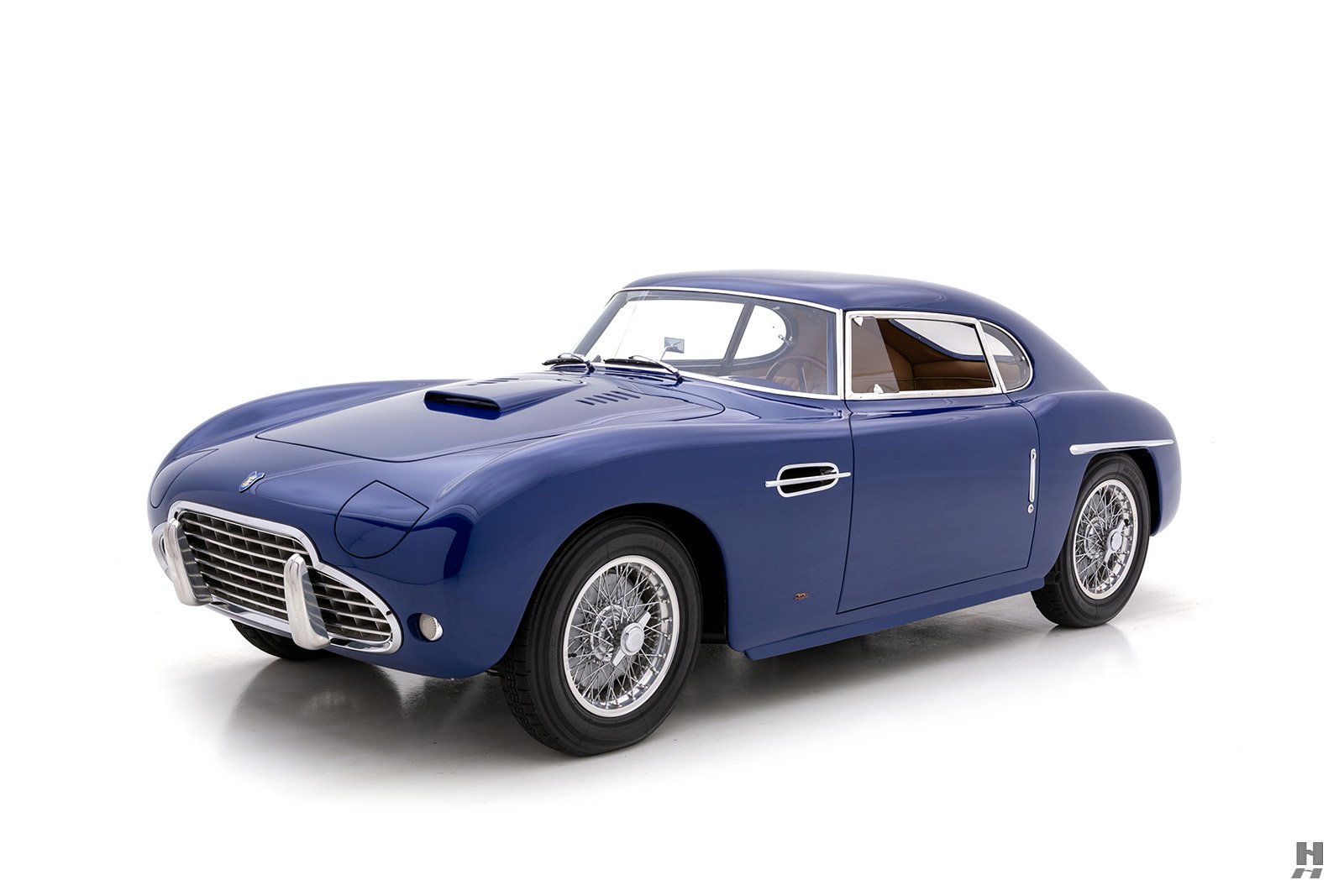Like many great motoring engineers, the Duesenberg brothers struggled to translate their remarkable sporting success into a viable business. Despite an impeccable reputation building some of the most advanced and enormously successful racing cars of the early 20th century, their first attempt at a production car was almost their last. The Duesenberg Model A was undoubtedly a fine automobile, but poor management and questionable decisions hampered it from the start. Within a few years, Fred and Augie’s dream of building America’s finest car began to crumble. Thankfully, a savior came in the form of Errett Lobban Cord. Having already transformed moribund Auburn’s fortunes, he envisioned a luxury motoring empire with a glamorous flagship. In 1926, E.L. Cord purchased the Duesenberg Motors Company and installed Fred Duesenberg as Chief Engineer, although he pushed Augie into a secondary role outside of car development. Fred and his team set to work, bringing Cord’s vision of the world’s most prestigious motorcar to life.
Almost within moments of the Model J debuting at the New York Auto Show in December 1928, the world’s business moguls, movie stars, and social elite lined up for their chance to own a glamorous new Duesenberg. At its heart lay a 420 cubic-inch, Lycoming-built inline eight-cylinder engine featuring twin overhead camshafts and four valves per cylinder, rated at 265 horsepower. The robust chassis featured somewhat conventional, yet beautifully engineered components and powerful hydraulic drum brakes to keep all that power in check. The Model J vanquished everything else on the road and was by far the fastest, most exclusive, and most expensive car in America. At a price of nearly $10,000 for a chassis alone, sales never quite lived up to Cord’s hopes of 500 cars per year, topping off at just 481 cars in total. Today, the Model J and its derivatives stand as the Gold Standard of Classic Era automobiles and are among the most iconic and desirable motorcars ever produced in America.
Taking a page from Rolls-Royce and others, E.L. Cord offered the Duesenberg Model J as a chassis only, leaving the coachwork selection up to the buyer, whose tastes ran from gamut from conservative to outlandish. Many of the world’s most renowned coachbuilders graced the Duesenberg J chassis with their best work, with many notable bodies coming from Walter J. Murphy of Pasadena, California. Murphy hired some of the most exceptional young design talents on the West Coast, including George McQuerry, Phil Wright, and Franklin Quick Hershey, who’s portfolio later included the 1948 Cadillac and 1955 Ford Thunderbird. With such talent on hand, it is no surprise that Model Js by Walter M. Murphy are among the most sought-after of the marque, embodying the spirit of Duesenberg’s grace and performance in a distinctly sophisticated package.
It is with great pleasure that we offer this extraordinary Duesenberg Model J featuring handsome coachwork by the great Walter M. Murphy Coachbuilders. Identified by its original engine number of J-190, chassis number 2211 has been the centerpiece of the late Mr. Alvin Frankel’s California-based collection for an astounding sixty-six years. It is one of the last of the Model Js to emerge from long-term ownership and only one other chassis is known to have a longer streak. After receiving its beautiful Murphy body, this standard-wheelbase Model J briefly served as a demonstrator before being sold to Walter & Gertrude Reade of New York City. The Reades operated a thriving movie theater chain, during the golden years of cinema, and Walter Reade’s name still graces the cinema at Lincoln Center.
In the 1940s, it was sold by a used car dealer in Trenton, New Jersey, and driven across the country to California. According to a well-respected marque historian, the original engine suffered a spectacular failure in the late 1940s, damaging the block. A subsequent owner, believed to be a Mr. Patterson, ran it briefly with a Cadillac V8. Soon thereafter, he acquired and installed a proper Model J engine out of J-177, which had been badly wrecked.
In 1953, Mr. Frankel discovered J-190/2211 near his home in the Los Angeles area. As found, it was a complete, running and driving car, but in need of some restoration work. He negotiated a deal for the princely sum of $553 and brought the Duesenberg home. He used it off and on in the first year or so, but as Frankel told a newspaper reporter years later, he spent all his money buying the car, leaving nothing to put toward repairs. So J-190/2211 sat quietly in the garage while Al and his wife raised their family.
Frankel gradually worked to return J-190 to the road. He had the engine repaired by a noted Duesenberg specialist, who fitted new pistons and also rebuilt the rear axle with a new ring and pinion. They restored the top frame using a sister Murphy-bodied convertible sedan (J-208) as a template, and performed numerous other tasks to sort the car for driving. Over 60-plus years of ownership, Frankel never fully restored J-190; instead, focusing on preserving its authentic character. With the car back on the road, the Frankels enjoyed their Duesenberg as if it was part of the family, using it occasionally in local, Los Angeles-area shows and tours until Al’s health declined.
After decades of continuous ownership, J-190 presents in remarkably well-preserved condition, displaying a refreshingly honest patina rarely seen on Duesenbergs. Finished in black with green wire wheels and black leather upholstery, this Model J has a distinctly purposeful appearance, with understated and elegant Murphy coachwork. Photos in the history file document partial paintwork, mainly on the front fenders. While the paint and brightwork show noticeable wear, it is part of what makes this car so appealing. On the mechanical side, it is quite sound. It runs and drives, although the brakes need service and it may require some additional straightforward sorting before more vigorous use. The bell housing is still the original, stamped with J-190, and an inspection of the crankshaft confirms the engine to be J-177, verifying the history prior to Frankel’s acquisition. Backing its condition is a file containing a series of California registration slips dating back to 1954, newspaper clippings, technical notes, and correspondence.
The sale of J-190 represents a one-off opportunity to acquire one of the last long-term ownership Duesenberg Model Js left in the world. This proud flagship of a marvelous collection for over sixty years is now ready for its next keeper to cherish for decades to come.
Offers welcome and trades considered
Sorry this car has been sold. Are you looking to buy or sell a car like this? Contact a representative
For immediate assistance please call us at +1-314-524-6000 or please fill out the following form and a member of our team will contact you.





































